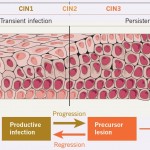 Dr. Stephen Techtmann is one of many new faculty welcomed to campus this year:
Dr. Stephen Techtmann is one of many new faculty welcomed to campus this year:
Stephen Techtmann, PhD
Stephen Techtmann joins the Department of Biological Sciences as an assistant professor. Prior to Michigan Tech, Techtmann was at the University of Tennessee. Techtmann earned a PhD in Molecular and Cell Biology and a Bachelor of Science in Biochemistry and Molecular Biology from the University of Maryland.
His expertise and interests are microbial ecology of extreme environments with specialization in the collection of genomic and metagenomic data to elucidate the mechanisms of evolution and adaption. He has been published in Current Opinions in Biotechnology and Environmental Microbiology.
In addition to Dr. Techtmann faculty in other Departments can be found in the special edition of Tech Today.
 Christina Lehman, Kinesiology and Physiology: Congratulations to Andrew Chapp for receiving a Predoctoral Fellowship from the American Heart Association. Andrew is a Biological Sciences PhD student working in
Christina Lehman, Kinesiology and Physiology: Congratulations to Andrew Chapp for receiving a Predoctoral Fellowship from the American Heart Association. Andrew is a Biological Sciences PhD student working in  AUSTIN, Texas — Michigan Tech football players
AUSTIN, Texas — Michigan Tech football players  The
The 


 Dr. Thomas Werner and Dr. Xiaoqing Tang are featured in two separate articles in the last couple of week in the Michigan Tech Lode.
Dr. Thomas Werner and Dr. Xiaoqing Tang are featured in two separate articles in the last couple of week in the Michigan Tech Lode. The First Annual Research Forum sponsored by the Life Science and Technology Institute was held Sept. 24 and 25. Twenty-seven graduate and undergraduate students conducting research in life science, biotechnology, human health and related areas presented posters.
The First Annual Research Forum sponsored by the Life Science and Technology Institute was held Sept. 24 and 25. Twenty-seven graduate and undergraduate students conducting research in life science, biotechnology, human health and related areas presented posters.